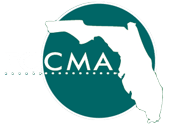 By Milo M. Zonka, CFP, CGFO, CFO/Senior Director, Finance & Administration, Brevard County Property Appraiser
By Milo M. Zonka, CFP, CGFO, CFO/Senior Director, Finance & Administration, Brevard County Property Appraiser
Each of the 67 Florida Property Appraisers conduct business with their local communities’ best interests in mind, and with their own personal leadership style. There is a lot that is different between the Panhandle, the cities, the coasts, agriculture, and the Keys. What’s not different is the constitutional obligation to produce as fair and accurate an assessment roll as humanly possible. Fairness implies that two taxpayers, owning property of similar value, with similar circumstances, and with similar exemptions available to them under the law, should pay a similar amount of taxes to support the government functions that protect and serve them.
Tax exemptions available to Florida homeowners can be immensely valuable, particularly the homestead exemption. Between exempted value and capping, the benefit can be worth hundreds or thousands of dollars in annual savings to the taxpayer — and a balancing act that all local governments have to deal with as they continue to advocate for the best possible services for their constituents. So what happens when, whether by accident or intention, fairness doesn’t prevail, and a tax savings is enjoyed by a taxpayer who doesn’t have the right?
That’s where your local Property Appraiser steps in. All 67 offices around the state make their best effort to identify fraud. Using Brevard County as an example, we do this first on the customer service front line, typically by considering the taxpayer’s information provided when they apply for a homestead exemption and asking good questions. Own multiple properties? Do you have any exemptions on them? Do you occupy the house as your primary residence? Some answers can limit eligibility for Florida’s homestead exemption. It’s far better to be upfront now, versus a painful “gotcha” later!
A lot of information is available to property appraisers to help identify fraud, such as homesteads that are primarily rented, or property that has changed owners by death or sale. Oftentimes neighbors concerned about fairness contact their property appraiser to report these types of issues in their neighborhood. In other situations, mail that is sent from county property appraisers have ‘do not forward’ orders, so the USPS has to notify us of mail forwarding that may indicate a change of residence. Many offices employ full-time analysts and/or investigators to work through cases that are identified. In our case in Brevard, each year our four analysts and investigators work hundreds of cases. As our staff investigates and resolves cases of fraud, each year the effort returns millions of dollars of taxable value to the roll. Liens for back taxes, penalties and interest recover, on average, more than a million dollars for local taxing authorities each year as prior tax bills are corrected for fraudulent use of an exemption.
In recent years, several counties (including Brevard) have taken an additional step to use ‘big data’ to our advantage. While some cases of fraud are easy to identify, such as multiple homesteads filed in-state, there is a lot of data that is not readily available on a cost-feasible basis, either because the data is expensive for our single purpose use, or because the manual searching and processing would be too time-consuming.
As every reader knows, when an intelligent entrepreneur identifies a problem, comes up with a workable solution and finds a market for it, the end result is a sales call. One call we took a couple years ago was from a company that could connect our problem—hard to find ownership and residency data—with a solution—the vast consumer data files (the “big data”) that companies like Lexis-Nexus have compiled on virtually all of us—and they would be the intermediate between the two. For a fee, of course. America!
This isn’t an advertisement for the company that our office ultimately selected. They are contracted to work in dozens of jurisdictions around the country, including several Florida counties, and have delivered results that equate to seven-figure collections for fraud and tens of millions of dollars of taxable value properly put back on county tax rolls. They offer a flat fee for their work, but it’s an expensive, up-front proposition that can screw up cash flows, for example, by paying the vendor for work performed today, but waiting 15 years to collect on the resulting lien. The alternative is a contingent fee-for-service that is percentage-based and paid upon collection, not billing.
A contingency pay arrangement is a fair solution that protects both parties, the taxing authority and the vendor, and of course requires oodles of paperwork in the form of interlocal agreements and contracts. In our case, the Tax Collector and each of the 22 taxing authorities in Brevard County—the county, 16 municipalities, the water district, inlet district, library district and so forth—had to agree to the same payment provision and accept less for recovered fraud proceeds, but only for those cases that we felt could not otherwise even be identified. The challenge was getting 22 agencies to sign the same document. Please don’t be offended when I say that cat herding is far easier, but after countless calls, emails, and governing board meetings, all of our jurisdictions agreed. The Brevard County Property Appraiser and Tax Collector went forward with the audit of our homestead exemptions in April 2017.
As of January 2018, the vendor’s “big data” review of Brevard’s almost 150,000 active homestead exemptions is completed and about 85% of the resulting cases have been completely vetted by our staff. The results of the homestead audit include 621 cases worth about $1.28 million in back taxes/interest/penalties and several million dollars put back on the tax roll. To date, about 43% has already been paid, with liens outstanding on the remainder. All in all, it’s been a productive effort as we further improve upon the accuracy and fairness of the county tax roll.






